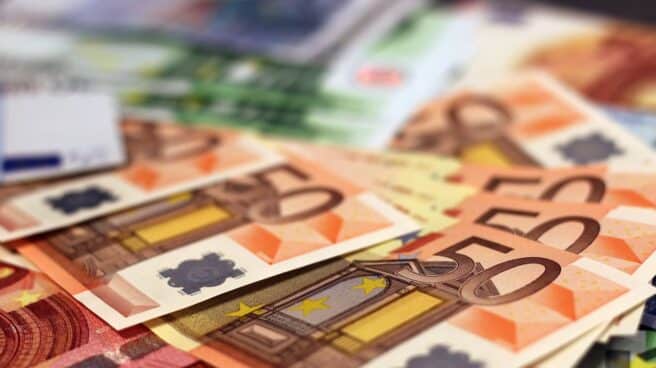

Cash
The tightening of monetary policy is being transferred to the economy. This is one of the conclusions drawn from a statement by the Governing Council of the European Central Bank last Thursday. But in the same text they indicate that this transfer is carried out when credit is reduced, that is, the more expensive it is, the less demand. Little by little we are also seeing this shift in the savings of Spaniards. Banks go to war for obligations, paying off deposits.
The big banks were the last to enter, but they are already doing so despite the initial refusal. Not all large organizations do this, and those that do receive compensation do so under certain conditions. But we are already beginning to see movement and even struggle to achieve these savings. The banks refused to pay remuneration for these products, but many expected this to be inevitable because liquidity was about to tighten and because the Spaniards were demanding it.
And so it was. BBVA and CaixaBank are two large banks that started with rewarding deposits, albeit with strings attached. BBVA launched a 12-month deposit at 2.75%. However, the product is not available to all clients and is offered at 2.75% depending on the client’s profile and connection. It also doesn’t work if they give you a link, which means it’s a 100% personalized product.
In the case of CaixaBank, the organization launched a deposit at 2%, but there are nuances here too. Everyone gets 1%, but to get the maximum reward, the client must send wages, take out home, life or health insurance, an alarm or a pension product.
At the moment, the remaining major banks have not yet launched. Although it should be noted that Banco Santander has deposits through its digital bank OpenBank. The enterprise offers 3.50% per annum on deposits for a period of twelve months individually for specific clients and, according to enterprise sources, on a timely basis. All savers will be able to access a welcome deposit paying up to 3.07% per annum for six months if they invest their earnings directly.
In this moment Banco Sabadell has an online account that pays 2% up to €20,000 indefinitely. In addition, the Catalan company has launched a promotion for those new customers who order this product before January 2, with a reward of 3%. Specifically, the business will pay a nominal interest rate (TIN) of 6% for the first three months and 2% for the following months.
Although payments are not being made as usual, we have seen the average interest rate offered by banks on these products rise to 2.45%, the highest level since December 2012 when it was 2.45% (96 %). This increase was due to a rate hike by the European Central Bank. Currently rates are 4.5% and the latest are 4%. Therefore, it was expected that this remuneration on deposits would be higher.

Spaniards choose treasury bills
Deposit rewards are starting, but Spaniards, hit by high inflation and a loss of purchasing power, have had to look to other products that offer them some profitability, even if they don’t beat inflation. Depositors opted for treasury bills, that is, short-term government debt. This product is intended for conservative investors such as deposits as its risk is low.
Although banks refused to pay interest on these products, 12-month treasury bills increased their yields and caused Spaniards to line up at the doors of the Bank of Spain. These lines were so inflated that they forced the organization to schedule a pre-event that sold out for the following weeks.
The profitability of this product started the year at 2.98%, but for the year it has approached 4%. (it reached 3.8%). However, the last December auction closed with a yield of 3.31%. Despite the drop, it is higher than the average 12-month interest rate.
Domestic investors’ interest in Treasury bills has been particularly strong this year. Thus, retail investors increased their assets from 99 million in September 2022 to 21,352 million euros at the end of September 2023, representing 30% of total letters in circulation, the highest to date, up from 2.4%. since the end of last year. .
Source: El Independiente